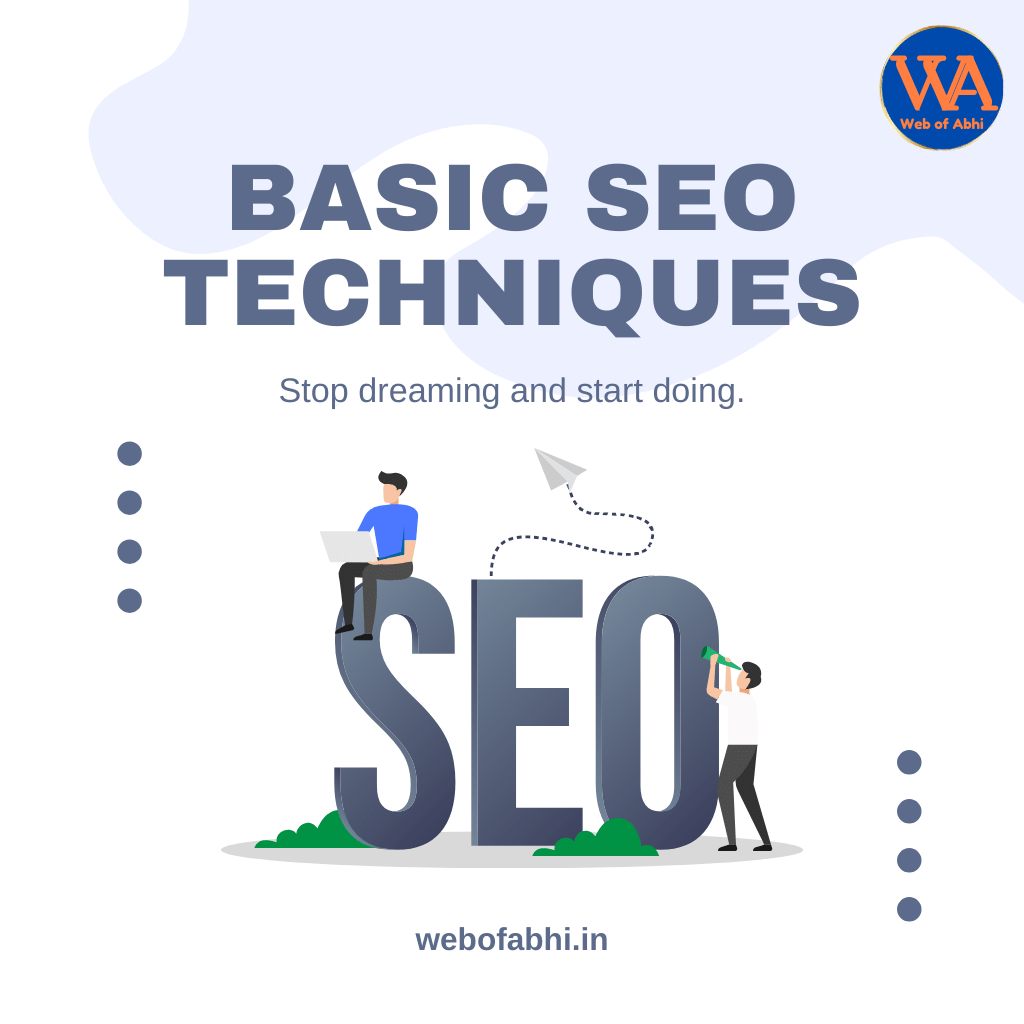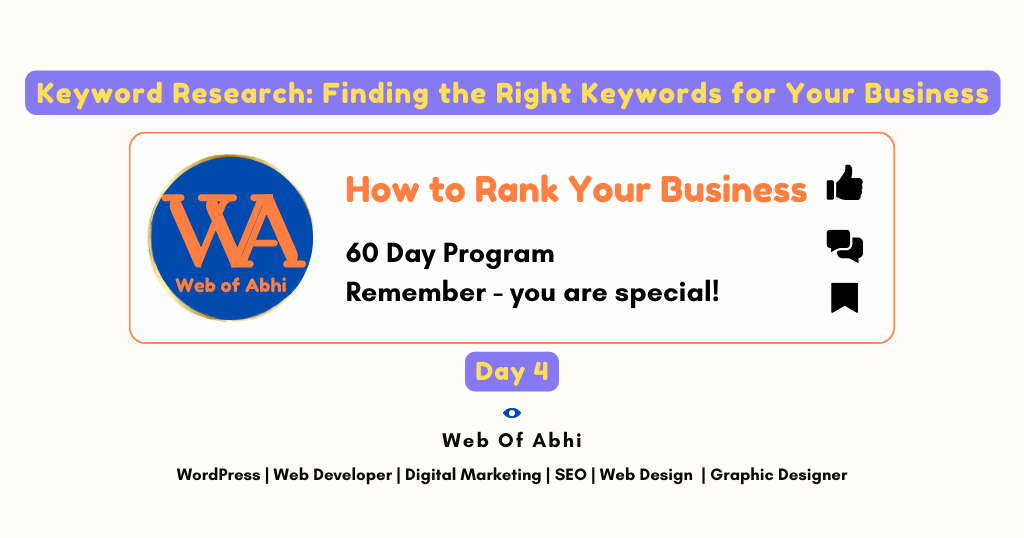How to Rank Your Business Series – Day 03
In today’s digital landscape, Search Engine Optimization (SEO) plays a pivotal role in the success of any online business. Understanding the SEO Basics is essential for improving your website’s visibility, driving organic traffic, and ultimately, achieving your business goals. In this comprehensive guide, we’ll delve into the basics of SEO, covering everything from its core principles to practical strategies for optimization.
Let’s Understand SEO

What is SEO?
SEO stands for “search engine optimization.” In simple terms, SEO means the process of improving your website to increase its visibility in Google, Microsoft Bing, and other search engines whenever people search for:
- Products you sell.
- Services you provide.
- Information on topics in which you have deep expertise and/or experience.
The better visibility your pages have in search results, the more likely you are to be found and clicked on. Ultimately, the goal of search engine optimization is to help attract website visitors who will become customers, clients or an audience that keeps coming back.
Core Principles of SEO
- Keywords Research: Keyword research identifies the search terms that your target audience uses to find content related to your business. Good keyword research involves understanding the search intent behind each keyword and targeting keywords with high search volume and low competition. According to a study by Ahrefs, long-tail keywords (more specific and longer in length) account for 92.42% of all keywords. This highlights the importance of targeting long-tail keywords relevant to your business and audience, as they can be easier to rank for and attract more qualified traffic. Detail Analysis of this will be done in Future post.
- On-Page Optimization: On-page SEO is the practice of optimizing individual web pages to rank higher and earn more relevant traffic in search engines. By optimizing various on-page elements, you can improve your website’s visibility, relevance, and user experience. In Future guide, we’ll delve into the essentials of on-page SEO, covering key elements and best practices for optimizing your website content.
- Off-Page Optimization: Off-page SEO plays a crucial role in improving your website’s authority, relevance, and visibility in search engine results. Central to off-page SEO is the process of building quality backlinks from authoritative and relevant websites. In Future post, we’ll explore the essential off-page SEO techniques for building quality backlinks that boost your website’s ranking and authority.
- Technical SEO: It will Cover technical aspects like site speed, mobile-friendliness, and structured data markup.
Key Components of SEO
- Content Quality: Always Emphasize on the importance of high-quality, relevant content for SEO success.
- User Experience: In this We will Discuss how user experience factors like site navigation and page load times impact SEO.
- Authority and Trust: In this we will explore how building authority and trust through backlinks and reputable content enhances SEO performance.
- Relevance: You will learn importance of relevance in both content and backlink profiles for ranking in search results.
SEO Best Practices
- Content Creation: We will Provide tips for creating engaging, optimized content that resonates with your target audience.
- On-Page Optimization: We will discuss in detail the best practices for optimizing meta titles, descriptions, headings, and internal linking.
- Link Building: Learn about ethical link-building strategies to acquire high-quality backlinks from authoritative websites.
- Technical SEO: We will address common technical SEO issues and offer solutions for improving site performance and crawlability.
Measuring SEO Success
This Section will Cover How you will measure your SEO Success. Are there any Metrics for this? Any Analytical Tool available for this?
- Metrics and KPIs: We will Identify key performance indicators (KPIs) such as organic traffic, keyword rankings, and conversion rates.
- Analytics Tools: Learn popular SEO tools like Google Analytics, Google Search Console, and third-party SEO platforms for tracking and analyzing performance.
Future Trends in SEO
Till Last Post we will be able to learn How changing technological landscape has affected traditional SEO and What should we do about it?
- Voice Search: We will discuss the rise of voice search and its implications for SEO strategies.
- Mobile-First Indexing: We will explain Google’s mobile-first indexing approach and its impact on website rankings.
- Artificial Intelligence: We will learn how AI technologies are shaping the future of search and SEO optimization.
Understanding the basics of SEO is essential for anyone looking to establish a strong online presence and drive organic traffic to their website. By implementing the core principles and best practices outlined in this guide, Learning Step-by-Step in Future post, you’ll be well-equipped to optimize your website for better search engine rankings and long-term success in the competitive digital landscape.
Stay tuned for more insights on ranking your business in the digital landscape.
AR
Owner of Web of Abhi – Online Business Solution CompanyGraphic Designer | Web Developer | Digital Marketing | WordPress | SEO | Web Design



